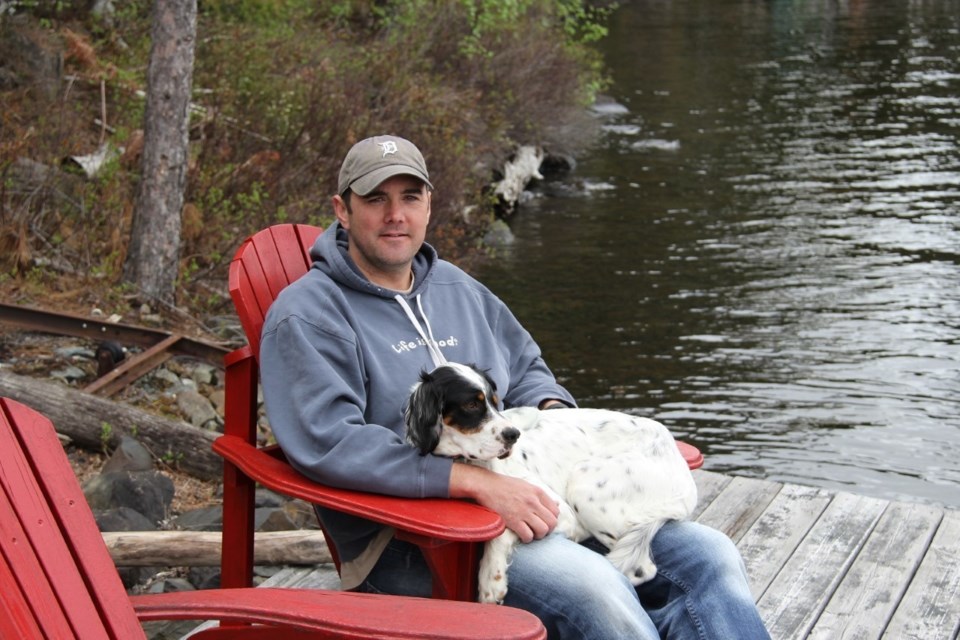The first call for many people feeling poorly is to Telehealth Ontario. It’s a professional service designed to assist with medical care decisions, such as whether a trip to the doctors’ office or a hospital emergency unit is necessary.
I hadn’t used it until about a year ago. I woke up one morning with abdominal pain. Gas? Maybe. So I went to work, hoping it would pass (literally). But it got worse. The Telehealth staffer I contacted listened to my symptoms, took a minute or so to digest them, then suggested I present myself to the nearest emergency unit within an hour.
That evening, my soon-to-rupture appendix was removed. Thanks, Telehealth Ontario!
But what happens when your pet is feeling poorly? Or you think it’s eaten something it shouldn’t?
More than half of the households in Canada own a pet. Yet when they’re suddenly sick, or might be, the only alternative is an emergency call to a veterinarian. Thank goodness that options exists – our veterinarian brought our dog Fender back from the brink once when he ate something he shouldn’t have. But when Fender got sick, our veterinarian was not immediately available for advice, so the emergency visit to the veterinarian was the only option. In our case it was warranted. In some cases, it isn’t.
Now, there’s a telehealth service for pets, based in Guelph. In January, Garth Graham, a 2001 graduate of the Ontario Veterinary College, received the green light from the College of Veterinarians of Ontario to open TelehealthPets. It’s his own business, not an arm of the province or any other organization. But the key is that as the only provincially accredited telehealth facility in Canada, it has to meet the same standards and quality of information as local veterinary hospitals.
So when you call 1 800 670 9605, seven days a week between 7 a.m. – 10 p.m., you get a veterinarian (Graham) on the other end of the line. He’ll listen to your issue and give you advice, which – like my TeleHealth Ontario experience -- might well be to go to an emergency veterinary service.
The first call to TelehealthPets is free. But if you think you’ll need ongoing assistance – you live in a remote area, for example, and have very limited access to a veterinarian – you can sign up for a membership package at a reduced price, or pay by the individual call as needed.
Graham is working to gain interest among like-minded industry partners, in hopes of adding more services and reducing the price of the service to pet owners. His long-term goal is to build a team of consulting veterinarians and extending reach beyond provincial borders.
But for now, he’s off to a good start with just him in his Glasgow Street home office.
“My days are full,” he says.
He’s used to full days. Graham’s worked in a rural-urban veterinary clinic near Orangeville, with pets and with livestock, and with a veterinary pharmaceutical company. Through the years, he saw a need for greater accessibility, particularly for low-income pet owners who find a visit to the veterinarian tough financially, and for rural Ontarians (especially in the north) who have extraordinary distances between them and their veterinarians.
“When it comes to veterinary care, it’s all about accessibility, geographic and financial,” he says. “This service tries to address both issues, and help people be informed about veterinary medical issues, so they know more when they visit a veterinarian.”
For Graham, another driver to create the service was requests he received from family and friends for armchair diagnoses of their pets’ condition – nothing they thought required immediate attention, but also, more than they could glean from an Internet search. For example, questions about fussy eating and diets.
“If your dog is becoming a fussy eater, and his breath is bad and his teeth are brown, he needs dental care, not a different diet,” says Graham. “He needs to see a veterinarian.”
